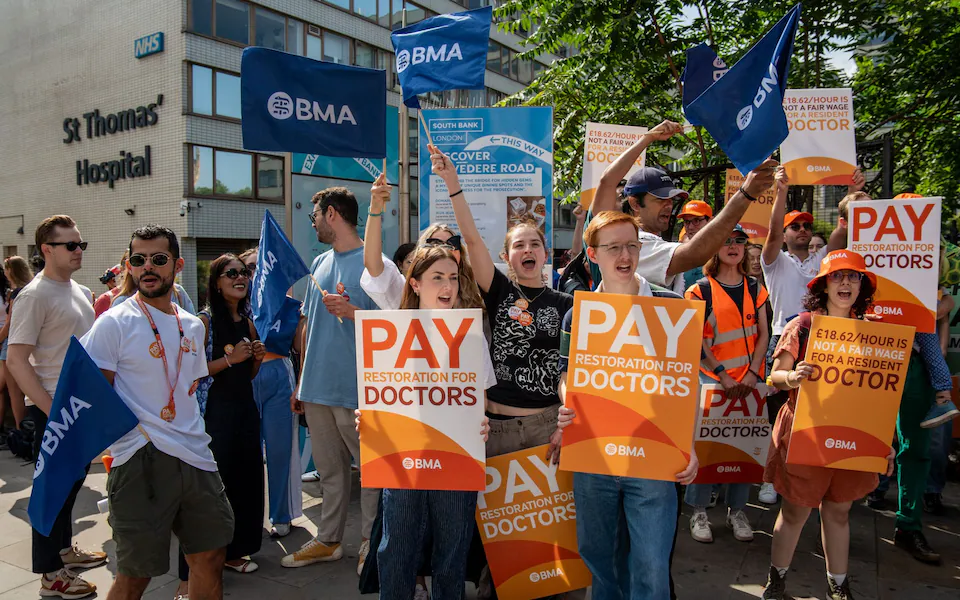Britain is heading into an autumn of strikes that threaten to disrupt essential services, with industrial action planned across transport, healthcare, and local government.
The RMT union confirmed on Thursday that the London Underground will face a week of strikes starting September 5, just as schools reopen and passenger numbers surge. Signallers, engineers, and service control staff will walk out on staggered days, causing severe disruption across the capital.
The strike follows members’ rejection of a 3.4 per cent pay offer, with union leaders also citing demands over Boxing Day payments, shorter working weeks, and long-standing grievances about fatigue and shift patterns.
While tube drivers are not joining the action, the walkouts are expected to bring large parts of the network to a standstill.
Economists warned that the disruption could cost London’s economy up to £250m, with lost revenue for Transport for London (TfL), heavier congestion, and extended travel times.
Eddie Dempsey, RMT’s general secretary, defended the action: “Our members are not asking for a king’s ransom. Fatigue and extreme shift rotations are damaging their health and well-being – issues ignored for years by London Underground management.”
Sadiq Khan, the Labour Mayor of London, urged both sides to resume talks, insisting: “Nobody wants to see strike action or disruption for Londoners.”
Public Sector Unrest Deepens
The tube strikes are set to trigger a wider wave of industrial unrest this winter.
Healthcare: GPs are threatening winter walkouts over funding and demands for greater control of new community hubs.Resident doctors, despite securing a 22 per cent pay deal, retain a mandate to strike until January. Nurses have also rejected a 3.6 per cent offer, with the prospect of joining fresh walkouts alongside paramedics and cleaners. NHS strikes have already led to 1.5 million cancelled appointments since 2022.
Local Government: In Birmingham, bin collectors are locked in a dispute with the city council and could extend a five-month strike through Christmas, leaving rubbish piling up on the streets. Unite, Labour’s biggest donor, has threatened to withdraw financial support from the party over the row and suspended Deputy Prime Minister Angela Rayner’s membership for “failing to back workers.”
Political and Economic Pressure
Prime Minister Sir Keir Starmer had sought to prevent a new wave of strikes by approving £10bn in backdated public sector pay rises after Labour’s election victory. But the concessions have not curbed unrest, with more than 280,000 working days lost to strikes in the first half of 2025 alone.
The unrest adds to pressure on Chancellor Rachel Reeves, who faces a £50bn hole in the public finances, and risks overshadowing Sir Keir’s planned political reset next month to show Britain is not broken.
Wes Streeting, the Health Secretary, said ministers had a duty to resist excessive pay demands: “We can’t do everything for everyone, everywhere, all at once.”
Critics accuse Labour of weakness, with the Conservatives charging the government with putting “union bosses ahead of working people.” Shadow transport secretary Richard Holden said: “Rachel Reeves blew £10bn on inflation-busting pay rises, and the unions have smelt weakness ever since.”
The UK’s public sector pay bill is now forecast to rise by nearly £7bn next year, £3bn more than economists had anticipated.



